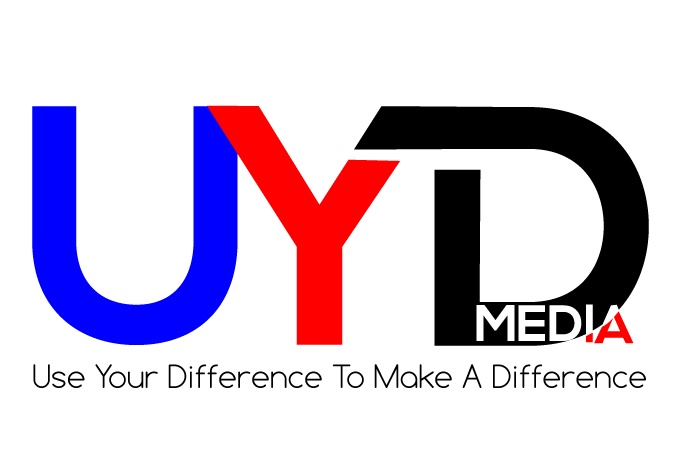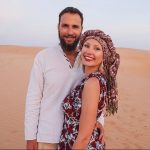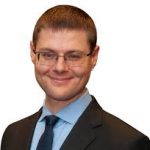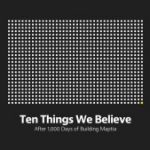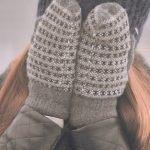Can you tell us about your background?
I was born on November 1, 1991 in Liberia, West Africa. My survival was quite miraculous as it was just around the beginning of Liberia’s civil war. With the rising insecurities, my parents took refuge with me in Guinea, preventing them from completing their education. Since then, they have sacrificed their dreams and dedicated their lives to give me and my sibling the education they never received. An education with the goal to know God and appreciate people of different cultural, racial and religious backgrounds – which were major causes of the war in Liberia and many other wars around the world.
The civil war ended in 2003 and my family and I returned to Liberia in 2006. I completed high school and obtained an Associates of Arts Degree in Management and a Bachelor of Science in Economics from the Stella Maris Polytechnic in 2014.
Over the last five years of my life, I have been driven by a deep sense of urgency to be the change I want to see in Liberia and the world at large. Liberia has been through fourteen years of civil war which interrupted the educational attainment of a whole generation of children and youth. I believe that “True Education”- which is intellect and character, is the fundamental element to every nation’s developmental process. Therefore, I have been volunteering and working in promoting education, learning and development, youth sexual and reproductive health, peace and collaboration. I am currently studying Social Entrepreneurship at Watson University in Boulder, Colorado; while leading a for-purpose educational venture called Mentor for Development in Liberia.
So with all that how do you usually identify yourself? So you’ve travelled, lived and worked in a few countries. Can you tell us what you’ve learned from your time overseas?
For my short life on earth, I have lived in Guinea and Liberia and I have travelled to Ghana, Nigeria, Togo, Benin and the United States of America. I lived, schooled, worked and made friends with whites, blacks, Muslims, Christians, Buddhists, Atheists and the list goes on. Although I am a Liberian, African, I identify myself as a human and appreciate the fact that I am a social being. I was created to live in a society with people who have different gifts, talents, skills, abilities; but most importantly, people with equal rights and importance.
I have learned that our most powerful weapon as humans is love. Unfortunately, many of us have not unlocked this power. That’s why we keep fighting to dominate and control one another; living unhealthy lives and destroying our planet. Love is the food to live healthy; the way to appreciate our differences and live in peace and harmony; and the strength to protect and save our planet.
How have resolved that feeling of home?
Though I grew up in Guinea, I knew that Liberia was my home and would have to return home someday. However, when the time came for me to go back to Liberia, I was sad that I had to leave my teen-love, my friends and communities I had known throughout my life. It was a tough decision for me, because Guinea had also become my home.
When I returned to Liberia, the first two months were challenging. I had grown up and gotten adjusted to a culture that was not my own. The language, the names, the people, the way of life was different from what I had known before. This was reality and I had to wake up and adjust my life. Like the law of adaptations we were taught in school. Once an organism begins its life cycle, it immediately faces survival needs. In order for it to achieve its full, natural lifespan, the organism must overcome many obstacles. I did overcome my challenges with building new relationships, learning new names, speaking the Liberian colloquial and accepted that Liberia is my home. God saw the entire world and the only placed He fit best for me was Liberia. I am grateful and honored that Liberia is my home.
So what is your venture about and what is your goal with it?
I run a for-purpose educational venture called Mentor for Development in Liberia, founded to provide Liberia’s youth with mentorship, tutorship, leadership and entrepreneurship programs.
Our goal is to empower the next generation of successful leaders in Liberia with life-long commitment to social responsibility. We are currently working to establish a Learning and Resource Center for students, teachers, professionals, community at-large to access information, skills, resources and opportunities to empower themselves and their communities.
In your opinion what aspects of being multicultural can be emphasized more in order to make one attractive to employers as well as universities?
To employers and Universities, having to live and work with people of diverse backgrounds helps us experience and learn about the beauty of diversity. From my experience, I’ve realized that despite our differences in beliefs, colors and cultures we do have amazing similarities. We can all feel pain, fear and love. Hence, employing staff or admitting students from different cultures gives us an opportunity to know each other better and to realize that we all go through similar experiences in life; therefore, universal peace and collaboration is possible.
What’s the experience like when you go back to Liberia?
Whenever I return from the US for example, I hear remarks like “America Wonder” or “Your color has changed oh” “you smell nice.” I love these compliments. They make me blush.
On the other hand, friends and families expect gifts. The first question they ask you “what did you bring for me?” Perhaps their perception is that everything is free in the US. Imagine someone asking you for iPhone 5 or Victoria Secret perfume. These are pretty expensive products! This often makes me afraid to let people know that I am in the US or I am coming back to Liberia. Despite these fears, I am always excited to go back home!
Favorite Liberian food?
Rice and Toborgee.
How does Liberia compare with New York?
I was surprised and shocked, but also emotional when I encountered beggars and homeless people in the subways of New York. It was irrational for me to think that I wouldn’t have seen people like that in one of the most popular city in the world. Reality slapped me in the face! Just like in the streets of Monrovia, New York City also has beggars and homeless people. That experience made me realize that people suffer even in developed countries.
What’s a false stereotype about Liberia?
After a Liberian man, Thomas Eric Duncan, contracted the Ebola virus in his home country, and then flew to the United States in September, 2014, the fear reached a fever pitch. This tragic misfortune became a source of unwanted stigma, shame and humiliation for our country. For example, Say the name Liberia in any part of the world and immediately people associate it with “Ebola.” Overnight, Ebola stereotypically defined what Liberia is and who Liberians are. We are Liberians and not a virus! Over 3,500 lives have been lost in this fight against the deadly Ebola virus. Doctors, nurses, young and old, entire families were laid to rest. I am excited to share that the last affected patient, Beatrice Yardolo marked a major milestone in our fight against the deadly Ebola virus on Thursday, March 5, 2015 by becoming the country’s last confirmed case discharged from hospital.
What is one way in which you connect with people when you travel My mission statement is “use your difference to make a difference” and that is something I try to live by everyday. What is one way you use your difference to make a difference?
My guiding philosophy is that I humble myself to understand and learn from and about others. I avoid prejudice and focus on the good in people, their beliefs and cultures. I ask questions to learn lessons, which most often are similar to where I come from.
What piece of advice would you give your younger self?
I went to private school throughout my life. Most of these schools were mainly dominated by rich kids and I wasn’t one. I had classmates who changed sneakers every day, wore fashion clothes and talked about their summer vacation abroad. I so much wanted to live in their lives. There were times I was so angry and asked God why I wasn’t born unto rich parents. I later realized that all I really needed from my parents was love and support. They were giving me those two things in abundance. They deprived themselves from the opportunity of getting college degrees and following their passion just for my siblings and me. My advice to my younger self then would be “Appreciate who are, what you have and make use of opportunities.
Tell us how you see multicultural individuals making an impact in the world. Country with the best food, music, movie, friendliest people?
Whenever you meet people from different countries, they are very nationalistic. Many people will tell you they are the best. I think we are all best in different ways. I love food from Liberia, doesn’t mean that Liberia has the best food in the entire world. I also love burgers from McDonalds, and Indian cuisine. I love black American gospel music, but I also appreciate and feel connected to South African music. I love American superhero movies, but also love Chinese karate movies, Mexican, Brazilian and Indian romantic movies; as well as African comedy and morality movies. In terms of friendliest people, all my friends from different countries are equally friendly.
Where can we find out more about you and what are you up to?
You can find more about me via www.linkedin.com/in/ghodges98/en or https://www.facebook.com/geraldly
